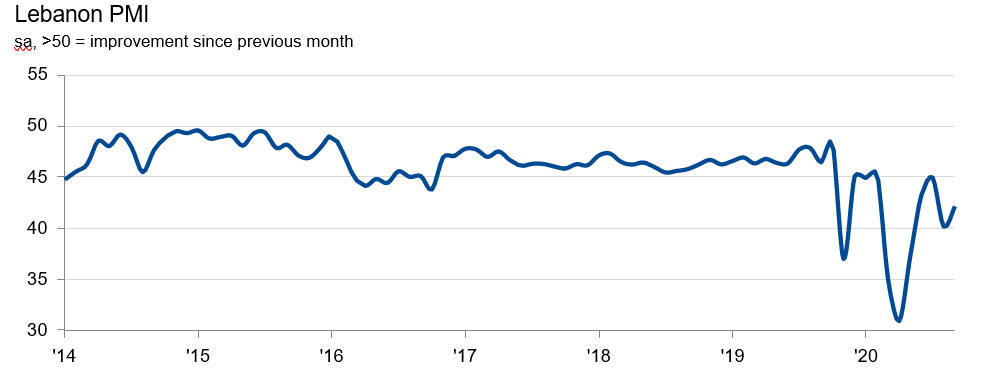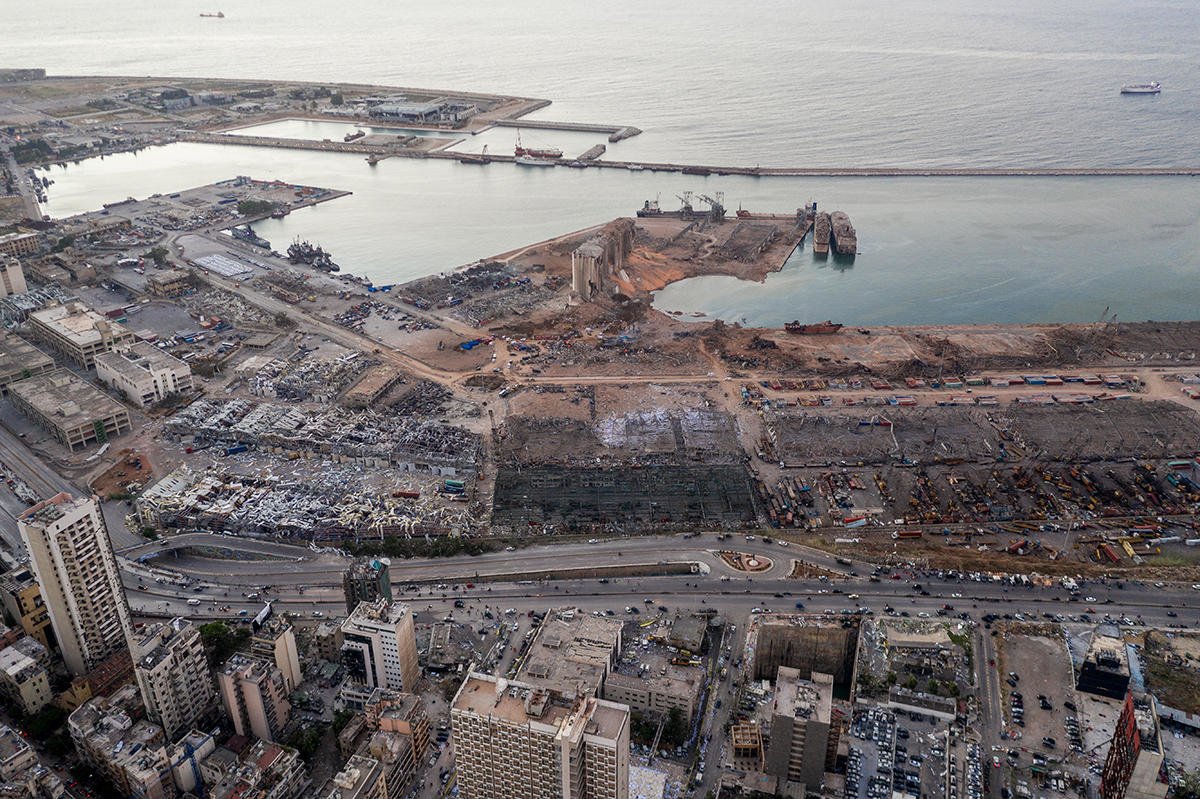
How the Lebanese private sector is coping in the eye of a storm
Lebanese private sector business conditions marked another deterioration last month, as firms continued layoffs with a sharp decline in wages.
According to the latest purchasing managers’ index (PMI), compiled by IHS Markit, the September reading released Tuesday, was 42.1, up from 40.1 in August, partially driven by a further drop in output at the end of the third quarter.
Although the contraction rate eased from August, it remained among the fastest since data collection began nearly seven-and-a-half years ago. Any reading below 50 represents negative growth.
The fall in activity was blamed on the ongoing disruption associated with the Beirut port explosion on August 4, as well as difficulties in securing US dollars.
New orders received by Lebanese businesses continued to fall during September. Underlying data indicated that both domestic and foreign demand conditions were subdued, with new export orders falling.
Amid a further reduction in new business, private sector firms continued to cut their staff numbers last month, extending the current sequence of workforce contractions that began in September 2019.

Dr Ali Bolbol, chief economist and head of research at BLOM Bank told Arabian Business: “After the August 4, 2020 blast, the Lebanese economy is trying to stand on its wobbly legs again, albeit with little success. Though the PMI increased to 42.1 in September from 40.1 in August, the business conditions remain markedly bad.”
He added: “Despite the current Covid-19 epidemic, it is quite clear that private sector fortunes will not turn around unless there is a government reform and recovery plan that takes measures to restore confidence in the banking system and the exchange rate regime and to bring good governance to public administrations, aided by sizeable concessional funding from outside. Unfortunately, the urgency of such a plan has yet to dawn on Lebanese politicians.”
In a sign of continued supply-side disruption, input delivery times lengthened further in the latest survey period. In fact, vendor performance deteriorated to the greatest extent for 10 months. Anecdotal evidence suggested that firms struggled to obtain the necessary US dollars to pay their suppliers.
Liquidity crisis
Looking forward, Lebanese businesses remained severely pessimistic towards the one-year business outlook. Negativity was driven by fears that the ongoing liquidity crisis would persist even with the formation of a new government. Sentiment was at the joint-weakest (level with August) since the survey's inception in May 2013.

International demand conditions faced by Lebanese businesses also deteriorated in September although the rate of decline eased from the previous survey period. When explaining lower export orders, some panelists cited disruption related to the Beirut port explosion.
Purchase costs faced by private sector firms in Lebanon continued to rise in September, extending the current run of inflation that began in February 2019. The latest increase was faster than in August and solid overall.
Staff costs at Lebanese businesses fell in September as some survey participants commented that wage cuts were required to maintain current staffing levels.











